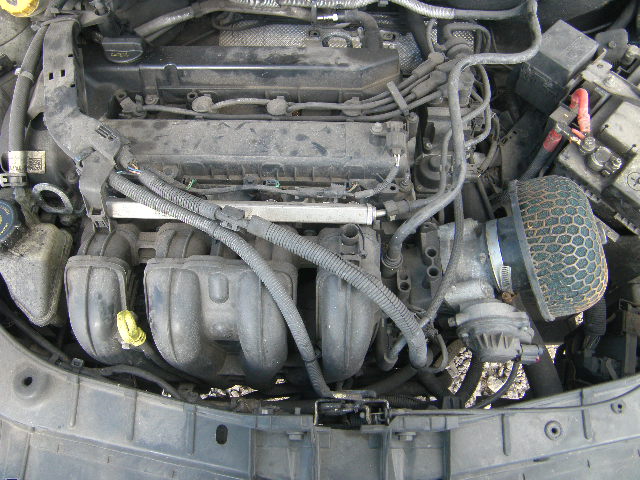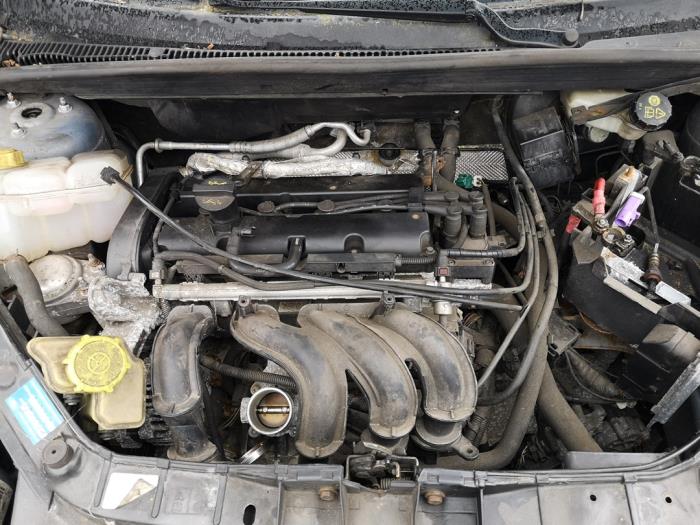Why Choosing the Right Ford Fiesta Engine Parts Matters for Longevity
Why Choosing the Right Ford Fiesta Engine Parts Matters for Longevity
Blog Article
Unlocking the Power of Engines: A Comprehensive Guide to Efficiency and Efficiency
Comprehending the elaborate auto mechanics of engines is critical for both efficiency fanatics and day-to-day vehicle drivers. The solutions might redefine our method to engine performance and efficiency in ways that are both informing and crucial.
Recognizing Engine Fundamentals
What constitutes the essential mechanics of an engine? At its core, an engine is a machine made to transform fuel right into mechanical power through a collection of controlled explosions or burning processes.
The crankshaft after that transforms this straight movement into rotational power, which ultimately powers the lorry. The camshaft manages the opening and closing of the shutoffs, controling the intake of air and gas and the expulsion of exhaust gases. Additionally, the engine relies upon a very carefully calibrated fuel-air combination, ignition system, and cooling system to make certain ideal efficiency and performance.
Comprehending engine basics additionally involves acknowledging the significance of engine cycles, such as the four-stroke cycle, which includes intake, exhaust, compression, and power strokes. Each stage is vital in guaranteeing the engine operates smoothly and effectively. Proficiency of these fundamental auto mechanics lays the foundation for exploring much more complicated engine characteristics and performance metrics, vital for maximizing both power output and effectiveness.
Key Efficiency Metrics
Key performance metrics are necessary for evaluating an engine's efficiency and power outcome, providing useful understandings for both manufacturers and consumers. These metrics offer as standards for engine performance, permitting informed decisions in layout, purchasing, and manufacturing.
One of the main metrics is horse power, which measures the engine's capability to do work over time. Torque, measured in pound-feet, is an additional important statistics that shows the engine's rotational pressure, directly influencing acceleration and towing capability. Fuel efficiency, usually determined in miles per gallon (MPG) or liters per 100 kilometers (L/100km), assesses how properly the engine transforms gas into motion, influencing functional expenses and environmental considerations.
In addition, thermal performance procedures exactly how well an engine converts fuel power into useful job, exposing insights right into power losses mainly through warmth. Exhaust degrees, including CO2 and NOx, are likewise vital, showing the engine's ecological influence and compliance with regulatory standards.

Tuning Techniques for Efficiency
Tuning techniques play a considerable function in improving engine performance by maximizing efficiency metrics determined in earlier conversations (ford fiesta engine). Different techniques exist to adjust an engine, each adding to enhanced websites fuel economic climate and minimized discharges
One efficient method is adjusting the air-fuel ratio, guaranteeing the engine operates within the optimal combustion regime. A leaner mixture can enhance fuel efficiency, but it must be stabilized to protect against misfires or engine knock. In addition, reprogramming the engine monitoring system can rectify criteria such as ignition timing, which even more enhances effectiveness while preserving power output.
An additional important approach entails changing the consumption and exhaust systems. Upgrading to high-performance air filters and exhaust headers can lower back pressure, promoting better airflow. This enables the engine to take a breath more openly, bring about improved combustion performance.
Moreover, the application of advanced adjusting tools, like dyno screening, supplies precise information that enables targeted changes. Routinely keeping track of these efficiency metrics guarantees that adjusting efforts produce the desired performance outcomes. Jointly, these techniques not just bolster engine efficiency but likewise add to long-lasting sustainability in engine procedures.
Maintenance for Ideal Performance
Routine engine upkeep is vital for achieving ideal performance and durability. A properly maintained engine not just operates effectively yet likewise decreases the danger of pricey repair work and failures. Secret parts requiring routine focus include oil, filters, belts, and ignition system.
Changing the engine oil at suggested periods is crucial, as oil lubricates relocating parts and prevents overheating. Likewise, changing oil and air filters ensures that impurities do not impair engine feature. Overlooking these parts can lead to decreased performance and possible engine damages.
In addition, checking and changing used belts and pipes is essential to stop sudden failures. Timing belts, particularly, ought to be replaced according to the maker's timetable to prevent catastrophic engine damage.
Glow plugs should also be checked and changed as necessary, since they play an important function in ignition and fuel efficiency.
Future Trends in Engine Modern Technology
Welcoming improvements in technology, the future of engine design is positioned to reinvent continue reading this efficiency and performance throughout various applications. Crossbreed and completely electrical powertrains are ending up being increasingly conventional, using reduced exhausts and improved gas effectiveness.
Moreover, technologies in materials scientific research are resulting in lighter, more powerful elements that boost engine performance while lowering power consumption. Advanced manufacturing strategies, such as 3D printing, enable for the production of complex geometries that enhance airflow and thermal administration, hence enhancing burning processes.
Furthermore, the assimilation of synthetic knowledge and device discovering is set to transform engine diagnostics and efficiency adjusting. These technologies can examine vast amounts of information in actual time, allowing anticipating upkeep and customized performance enhancements.
Final Thought
In final thought, unlocking the power of engines needs a complete understanding of their auto mechanics and performance metrics. Executing effective tuning techniques and sticking to normal upkeep methods substantially improve engine abilities.
In addition, view it now the engine depends on a meticulously adjusted fuel-air mix, ignition system, and cooling system to make certain ideal performance and performance.
Recognizing engine fundamentals also involves recognizing the significance of engine cycles, such as the four-stroke cycle, which consists of consumption, power, exhaust, and compression strokes. Mastery of these fundamental technicians lays the foundation for checking out extra complicated engine characteristics and efficiency metrics, necessary for enhancing both power result and performance.

Embracing advancements in technology, the future of engine design is poised to transform performance and effectiveness throughout different applications.
Report this page